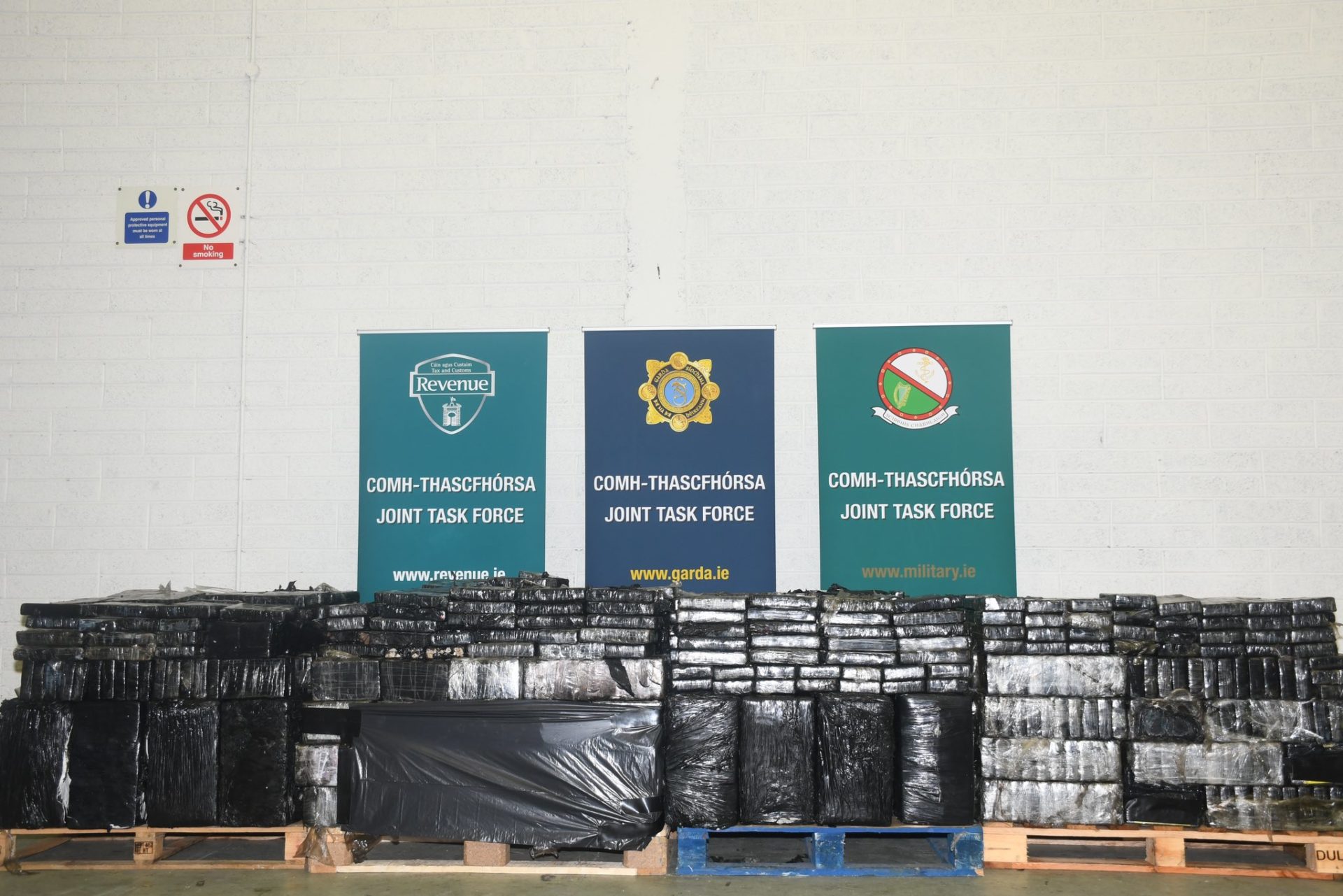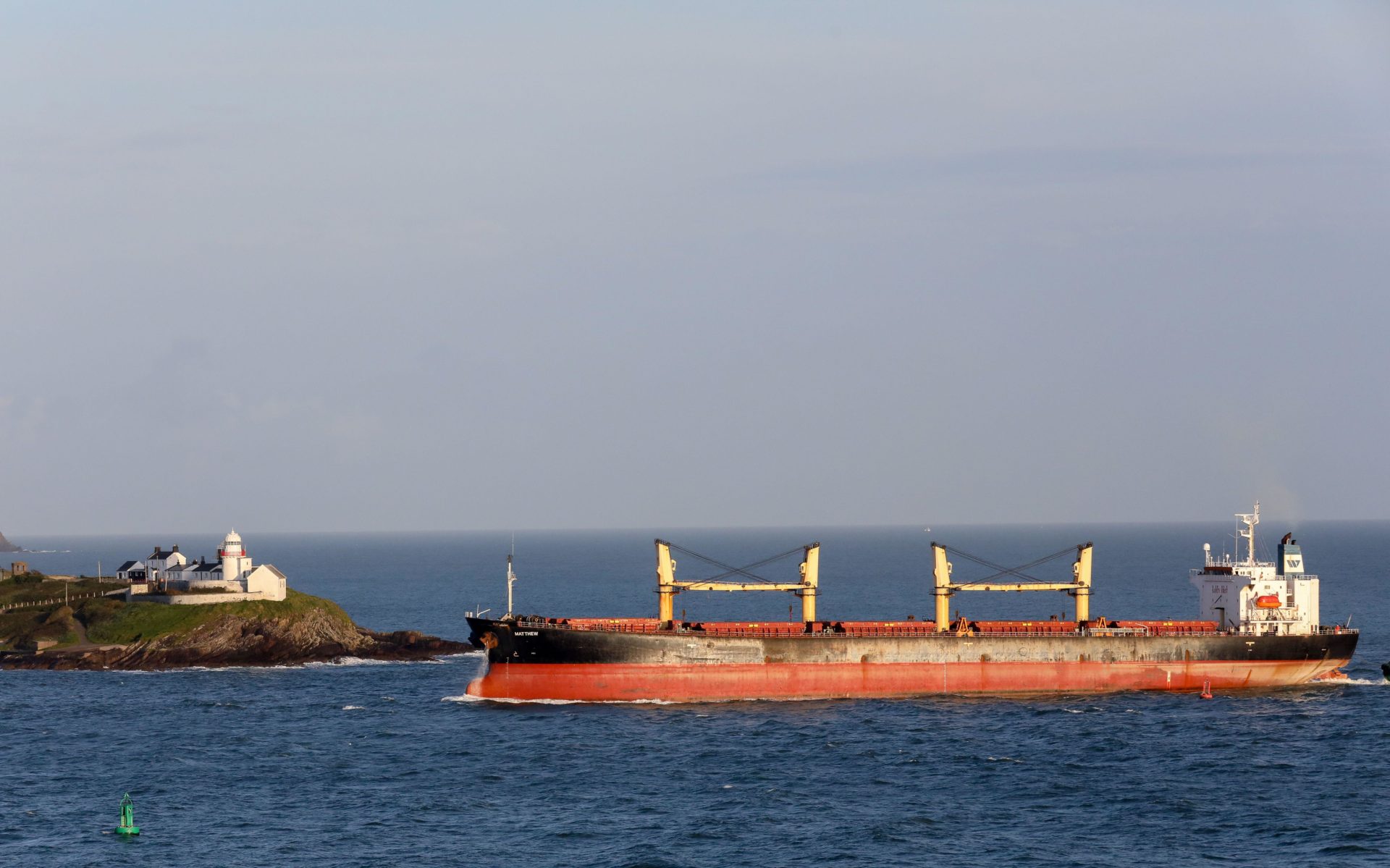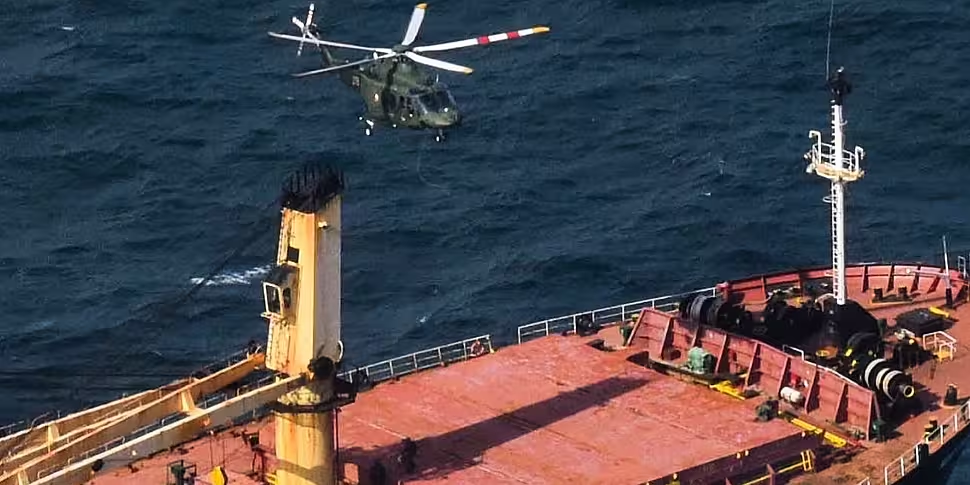It’s estimated that seven to 15% of all drug trafficking operations coming through the EU are currently being caught.
That’s according to Politico Reporter Hanne Cokelaere following the EU introducing a roadmap to address drug trafficking and criminal networks.
The report sets out a number of measures the EU will take, including a new European Ports Alliance, preventing criminal groups from recruit minors and working with international partners such as the USA.
Ms Cokelaere told The Pat Kenny Show EU member states want to coordinate their efforts to avoid the “waterbed effect”.
“It’s this idea that if you push back against drug trafficking in one port, it might pop up in a different port that’s easier to get into,” she said.
“[The roadmap] basically proposes cooperation on different levels – cooperation with non-EU countries, with Latin America, but also cooperation between customs authorities in the EU, public authorities, enforcement authorities, and private companies in the shipping sector.”
'We're talking massive numbers'
Drug traffickers are “very inventive”, according to Ms Cokelaere, and it is unknown how much trafficking passes through the EU.
“They only know how much they are catching,” she said.
“One assumption they have is that it's only seven to 15% of what's actually coming through.
“The Commission mentioned yesterday the Euro cocaine market is not the largest in the world, so we’re talking massive numbers.”
 €157 million worth of cocaine seized off the coast of Cork on the MV Matthew following a large-scale seizure operation. Image: An Garda Síochána.
€157 million worth of cocaine seized off the coast of Cork on the MV Matthew following a large-scale seizure operation. Image: An Garda Síochána.Ms Cokelaere explained the EU have already started work on some of the roadmap’s measures, but it’s difficult to know when we will start seeing its impact on criminal gangs.
“One of the things they said they want to do is identify security gaps and close them... coming up with proposals to close them or recommendations at the very least,” she said.
Incompatible legislation
Ex-Garda Assistant Commissioner Michael O’Sullivan said one of the biggest challenges in the roadmap will be addressing incompatible legislation across EU member states.
“For example, the [Irish] Criminal Assets Bureau is a very successful agency and seizes a lot of property and a lot of cash from drug traffickers and criminal gangs.
“But other countries have difficulties doing that because of their legislation and the various structures they have in place.”
 Bulk carrier MV Matthew suspected of carrying a large quantity of Cocaine arrives under naval escort at Roches Point, Cork, 26/09/2023. Image: David Creedon / Alamy Stock Photo
Bulk carrier MV Matthew suspected of carrying a large quantity of Cocaine arrives under naval escort at Roches Point, Cork, 26/09/2023. Image: David Creedon / Alamy Stock PhotoMr O’Sullivan said cooperation also may become complicated when different state agencies need to keep investigations “confidential”.
“Confidential information has to stay confidential for the success of investigations,” he said.
“They’re reluctant to share for obvious reasons.”
Main image: The MV Matthew. Picture by: Óglaigh na hÉireann









